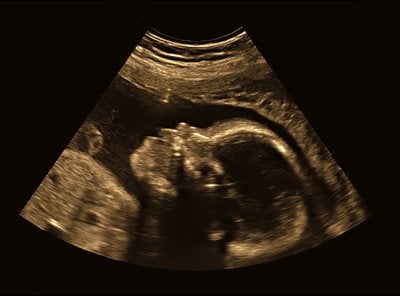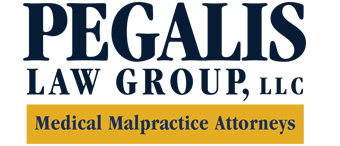-
Does a Stillbirth Affect Future Pregnancies?
 A stillbirth is a devastating experience that frequently takes couples by surprise. Many cases of stillbirth occur in pregnancies that were otherwise normal, and unfortunately, medical malpractice can play a role. If you suspect medical negligence was to blame for your stillbirth, contact a medical malpractice lawyer on Long Island to evaluate your case and determine if you have a medical malpractice lawsuit. While your case is being considered, you’re likely to have many questions about your stillbirth, including how it impacts your ability to expand your family in the future.
A stillbirth is a devastating experience that frequently takes couples by surprise. Many cases of stillbirth occur in pregnancies that were otherwise normal, and unfortunately, medical malpractice can play a role. If you suspect medical negligence was to blame for your stillbirth, contact a medical malpractice lawyer on Long Island to evaluate your case and determine if you have a medical malpractice lawsuit. While your case is being considered, you’re likely to have many questions about your stillbirth, including how it impacts your ability to expand your family in the future. Physically, pregnancy after stillbirth is safe, and the vast majority of people who have a stillbirth will never experience another one. The psychological recovery from stillbirth can take much longer. Typically, doctors advise couples to wait until they feel they have coped with the stillbirth before attempting another pregnancy. Understanding the cause of the stillbirth is helpful. If a condition like high blood pressure was the cause of the stillbirth, mothers can take steps to control that in future pregnancies. When medical malpractice was to blame, mothers can feel confident no physiological condition will put a future pregnancy at risk.
-
Talking to Your Doctor About Your Stillbirth
In the immediate aftermath of a stillbirth, it is difficult to focus on questions you have for your doctor. When you get an opportunity for a follow-up visit with your physician, it is a good idea to consider the topics you want to cover. Not only will the information help you come to terms with your experience, but it will also help you understand if medical malpractice could have played a role in the events. As you prepare for a conversation with your doctor, keep these tips in mind.
Make a List

Avoid having a conversation with your doctor without a plan. During your appointment, it’s natural to become emotional or to become sidetracked with discussing one part of the experience, so you could leave without getting the information you really want. Make a list of questions you want to ask and topics you need to address before your appointment, and consult it frequently during your conversation. When possible, bring your partner with you to help cover all of the concerns you have. Your partner can make his or her own list, or you can collaborate on coming up with questions together.
Take Notes
You’re likely to receive a great deal of information at once when you discuss your stillbirth with your doctor. Take careful notes during your consultation, rather than relying on your memory. These notes will help you clarify things and may highlight issues you need to explore further.
Get Help When You Need It
If you have concerns about medical negligence, talk to a medical malpractice lawyer about your case. Don’t directly confront your doctor about your concerns, but instead allow an experienced medical malpractice attorney investigate the case for you and determine if medical errors played a role in your stillbirth experience. Your lawyer can also help you understand what kind of compensation you may be eligible to seek.
After a stillbirth, let Pegalis & Erickson, LLC explore your claims of medical malpractice on Long Island, NY, and help you get the answers you deserve. Get a free consultation with an experienced attorney today by calling (516) 684-2900.
-
Understanding the Common Causes of Stillbirth
Stillbirth occurs when a developing baby dies after the 20 th week of gestation. If the baby is lost before this point, it is referred to as a miscarriage. Stillbirth is an indescribable tragedy for a family. After it occurs, bereaved parents may need to know why they lost their baby. Unfortunately, the cause of stillbirth cannot always be determined. However, in some cases, it is possible that medical malpractice played a role. Medical malpractice can include mistakes made while the expectant mother was receiving prenatal care.
Infectious Diseases
It is possible for stillbirth to be caused by infectious diseases that affect the mother, baby, or placenta. Infectious diseases are particularly dangerous when they occur prior to the 28 th week of gestation. A range of infections can cause the death of a developing baby, including listeriosis, fifth disease, cytomegalovirus, and syphilis. Prenatal care providers are responsible for detecting these possible problems and treating them to protect the health of mother and baby.
Umbilical Cord Problems

Less commonly, a baby may die before birth because of problems with the umbilical cord. The umbilical cord may become twisted or knotted, or it may not be properly affixed to the placenta. This interferes with the supply of oxygen to the baby and can cause stillbirth. Often, a stillbirth that involves umbilical cord problems also involves other complications, such as a prolonged and difficult delivery.
Placenta Problems
Placental abruption is a life-threatening problem that involves the partial or complete separation of the placenta from the uterus before birth. When this occurs, the baby is deprived of the nutrients and oxygen he or she needs. Additionally, placental abruption contributes to the risk of severe bleeding. This complication most often occurs during the third trimester.
The medical negligence lawyers at Pegalis & Erickson, LLC have a longstanding history of securing substantial settlements and jury verdicts on behalf of families affected by birth injuries and stillbirth. If your baby was stillborn, you deserve to know why. Contact our medical malpractice law firm in Long Island, New York at (516) 684-2900 to schedule a consultation.
-
Steps to Take After a Stillbirth
Stillbirth is defined as the loss of a child after 20 weeks of pregnancy. Thousands of families are affected by this tragedy every year. Sometimes, stillbirth occurs because of pregnancy complications. In many cases, however, the cause is unknown. Parents may find themselves at a loss for what to do after suffering a stillbirth. It’s important to take the time to care for your emotional health during this difficult time. If you suspect that medical malpractice might have been involved, you could also contact a medical malpractice lawyer.
 Preserve the Memories
Preserve the Memories
There is no “right” or “wrong” way to grieve after suffering a stillbirth. However, many parents find that it helps to preserve the memories of their child. You might find that holding your child helps you to grieve in a healthy manner. You could give your child a name and save keepsake items, such as a lock of hair. Some parents choose to take photos. Even if they cannot bear to look at the photographs, parents might find them comforting later on.Consider Medical Tests
It’s a good idea to have your medical provider run some tests on you and your child. It isn’t always possible to determine the cause of stillbirth; however, these tests may shed some light on what went wrong. In the event that you decide to consult a medical malpractice lawyer and pursue a lawsuit should the stillbirth be due to medical negligence, these tests may also provide crucial evidence. The medical tests that may be helpful after a stillbirth include blood tests, tests to check for infections, genetic tests, thyroid function tests, and an examination of the umbilical cord and placenta.The medical negligence lawyers at Pegalis & Erickson, LLC would like to extend our deepest sympathies to parents who have experienced the devastating tragedy of losing a child. If you would like to explore your legal options after a stillbirth near Long Island, New York, you can call us at (516) 684-2900. Our personal injury lawyers would like to help your family find the closure you need to move forward.
-
Getting Answers After a Stillbirth
One of the most emotionally devastating experiences a parent can have is the loss of a child. After suffering a pregnancy loss, parents often have more questions than answers, such as how such a tragedy could have occurred. Unfortunately, the cause of stillbirth isn’t identifiable in many cases. When the cause may have been medical malpractice, parents may wish to consider talking to a lawyer.
How Did This Happen?

There are many possible causes of stillbirth. They include fetal genetic or structural abnormalities, umbilical cord abnormalities, placental disease, and maternal or fetal infection. Obstetric complications such as abruption and multiple gestation could also contribute. Additionally, certain risk factors may increase the likelihood of suffering a stillbirth, such as older maternal age, concurrent medical disorders, obesity, and smoking. Obstetricians and other healthcare providers have a duty to carefully monitor maternal and fetal health during pregnancy, labor, and delivery. Medical negligence may contribute to stillbirth if a healthcare provider failed to manage risk factors of the mother, detect potential health problems, and treat these health issues.
Which Tests are Recommended?
After a stillbirth, the healthcare provider can carefully evaluate maternal and fetal health to try to determine what went wrong. The doctor should examine the baby, the placenta, and the umbilical cord. He or she may also ask the parents’ permission to run some medical tests. These may include amniocentesis, which is a test of the amniotic fluid to check for genetic conditions. Under certain circumstances, the provider should have recommended amniocentesis during pregnancy. The physician may also ask to perform an autopsy, test for infections, and conduct genetic tests.
After suffering a stillbirth, parents can turn to Pegalis & Erickson, LLC to find the answers they deserve. Our medical malpractice lawyers in Long Island, New York have years of experience guiding families through the most difficult times in their lives. You can schedule a no-cost, no-obligation consultation with a medical malpractice lawyer at our firm by calling (516) 684-2900.
-
Questions to Ask Your Doctor after a Stillbirth
No parent wants to consider the possibility of losing a child before welcoming him or her into the world. Unfortunately, medical malpractice can all too often result in stillbirth. After the loss of a child, parents are often faced with more questions than answers. If medical staff are resistant to answering questions, parents can turn to a malpractice law firm in Long Island for assistance.
How did This Happen?

After the loss of a child, one of the most common questions parents ask is how this could have happened? While there are identifiable causes of stillbirth, the exact cause in a particular case may sometimes be unknown. Some of the possible causes of stillbirth include chromosomal disorders, poor fetal growth, placental abruption, and chronic health conditions of the mother. Sometimes, a healthcare provider may be negligent in failing to diagnose or treat a health problem that can lead to these avoidable causes of stillbirth.Could My Baby Have Been Saved?
This is a difficult question to answer because it depends on the cause of stillbirth. Parents should try not to blame themselves for the loss of the baby. Sometimes, pregnancy loss occurs due to uncontrollable factors. At other times, it’s because of the negligence of the OB/GYN staff.What Should I Expect from the Recovery?
Recovering from stillbirth can be a very difficult time in a woman’s life. This is particularly true if the baby died in the uterus, which means that the woman will need to have labor induced or undergo a cesarean section. After stillbirth, it’s not uncommon for women to experience physical pain and discomfort. Parents may suffer from overwhelming depression and other psychological issues.The legal team at Pegalis & Erickson would like to extend our condolences to parents who have suffered the loss of their children. After the tragic loss of a child due to medical malpractice, you may wish to seek justice on behalf of your child. Please call (516) 684-2900 to speak with a medical malpractice attorney in Long Island, New York and discuss your legal options.
Recent Posts
Popular Posts
categories
- Uncategorized
- Infographic
- Patient Safety
- Patient Health
- Stillbirth
- Birth Injuries
- Medical Malpractice
- Medical Negligence
- Event
- Erb's Palsy
- Injury
- ER
- Video
- Cancer Misdiagnosis
- Medication Errors
- Cerebral Palsy
- Medical Negligence Lawyer
- Anesthesia Injuries
- Brachial Plexus
- Prostate Cancer
- About Us
- Men's Health
- Skin Cancer
- Breast Cancer
- Misdiagnosis
